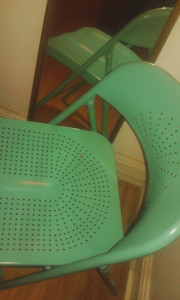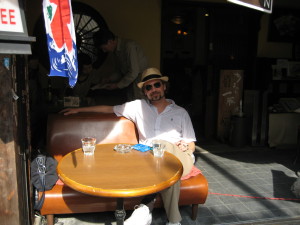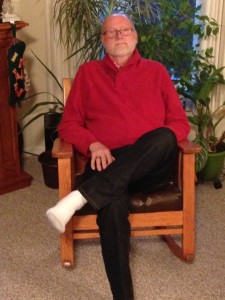Milan Carl Liskart, Coalman
Tom Sheehan
When the bounteous and splendidly round Kamilla Liskart died her husband dove into a clumsy silence. Without his wife, five years dead, and then with his son suddenly off to World War II out in the vast Pacific noise, our coalman Milan Carl Liskart began plowing through his days as if he were unconscious or barely breathing, coal delivery becoming, as if it were, his life.
A quiet man to begin with, he brought any and all trappings with him into that studied silence. Nothing but labor marked his days; he carried pain neither upon his brow nor spread on his sleeve bold as insignia of rank. Darkness just letting go, tonnage loaded and on the road, he could have said to the rising sun he had beaten out of bed, “Hello, angry dish! You here again late as usual? What’s in the pipeline today for me?” The day’s route and schedule with no degree of effort must have formed and reformed continuously at the back of his mind. There were times, as evidenced on occasion, that he lost the whole plan of the day; but hard work endured for him and proved itself endless.
Meanwhile, in his neighborhood, the old-timers spoke of the couple that for long years had searched out the mushrooms on the tall elm trees of the Cliftondale Square, Milan knocking the white knobs from their high gardens with his long telescopic pole, Kamilla catching them in the basket of her apron. The old ones, in hushed whispers, told of the union, how they whistled and sang at their Sunday work, God sitting himself on a high limb for the advance of their prayers. Sunday evenings, they reflected, there were services of mushrooms and red wine on the Liskart’s screened porch, now and then a low-sung song slipping from those happy confines, or a sudden twist of laughter gay as ribbons.
In one quick year, ending on a cold and dark October evening, lights steady and blazing in all rooms of their house, Kamilla’s laughter and roundness and the sure net of her apron left him. Such a tragedy was not unknown to me, having lost my beloved grandfather John Igoe but months earlier. I looked at our coalman with a different eye from the day of her death, the lonely perception of sharing in command. There had come to me a sense of measurement, and a sense of contrast. It was more than the beginning of manhood, which had been announced at about that same time with physical changes and other valid pronouncements.
Thenceforward, dawn to dusk for sure, Milan smelled of coal, a thick, acidic rankness that identified him in the doorway, even at a chance encounter on the walk or at the roadside. Kerosene, it seemed, rode him its liquid finery, or the crudest of oil with tinplate knowledge in it. Never was he as clean as leaded glass or pewter work or an amalgam solder, anything token of a craft or brought by keenness. Often I thought he must have slept at night in a mine, right down where the air is thin and ferric and smothered with its quality of gas, or in some colliery counterpart. He smelled like the coal bins I know fifty years later as remnants of that time, or old lanterns railroad men used to stop traffic with and which I occasionally find these days useless in old barns, or those round black-bomb lanterns that town workers, the endless diggers of earth and roads, set aside to mark off new trenches for water pipes right along the line of traffic. There comes, replete and terribly savory of nostalgia, the gray image of his dead-gray mackintosh standing like a sentinel on our front steps as he but steps away plied basket atop basket to the coal bin in the cellar. Determined, rodent busy, he went at his work.
Coal, those calamitous and combative years, was $12-14 a ton, anthracite with red or blue spots that today’s TV commercials would make merry music about, and knuckle hard. Soft coal was cheaper, but came dustier, burned faster, and needed more tending. Milan Carl Liskart, who lived on the edge of the great Rumney Marsh in the sight of the General Electric’s huge Riverworks Plant and the Atlantic’s edge, had one truck (a cumbersome Reo seemingly of one speed forward and one sense of duty) and delivered the kind of coal the customer wanted. Milan and the Reo were a decided pair.
Sometimes at our house, just outside Saugus Center on the North Shore above Boston, we had to get the cheaper soft coal due to financial calls; father, his own military tours done, was a guard at the General Electric Company; mother, a sweeper there before and after meals and wash done and hung on the line; older brother Jim, off in the explosive Pacific, his onionskin letters passed like diamonds between us in the kitchen. The winter of 1944 scratched the pocketbook deeply. Our lives were scratched too. The scratches and scars were all around us. Now and then the blood oozed free or gushed loose. Incidents in Europe and North Africa and the southern Pacific islands of madness converged like instant phantoms on our street, often in ghostly collision, a boy’s face somehow rampant on the air. Now and then the morning came greeted with a mother’s scream. A few of those days were so quiet we were afraid to breathe, to set a bubble adrift.
I can see him now, Milan Liskart, arms huge as timbers, Atlas shoulders, and blue shirtsleeves gone black where they rolled on his forearms. Rugged big teeth, worthy of new apples or tough steak, gleamed whiter on his darker face, his forehead was broad as a brick above thick brows, and his black hair was sent straight back to his neck by comb or hand. Every day he carried coal in a basket down into dark coal bins and I’d swear he only smiled at the drop of the final basket, that minute reprieve. The last basket dumped in our cellar achieved but a slight nod. The evening sun would daily mark his return from labors, the Reo chugging at its gait down the street close to the marsh, Milan parking in the driveway of his small house sided by reeds, his rushing to the mailbox to check on letters from his son. On some days there’d be a small eruption of jubilation, and he’d delay his retreat, pour a glass of whiskey into a glass on his porch, sit into the soft evening in his old Morris chair and read for hours. We never knew what his son had written, the letters being, beside his wife Kamilla, the most prized and most secretive thing Milan Liskart ever knew.
My grandfather, one of the few men I had seen head to head with Milan, obviously having some agreements in life, some related memories, or some aspect of their existence they shared or had kinship with. It was my grandfather who said that Milan most likely had his share of peace while he drove the cumbersome Reo, that driving the monster was a palliative to his troubled silence, allowing him a rare respite in his labored days. “No one knows what cooks in that man’s mind, more than the black spirit of silence, while he runs through the town from dark to dark and being black himself.”
It was on holidays or Sundays, when there was no mail delivery, he’d sit an hour or two in the White Eagle Café, a Polish weekend stronghold, sipping on strong whiskey, sitting among other quiet old Polish friends all measuring out the hours, the days, now and then a lifetime.
Which partially explains why Milan, on another Sunday afternoon, the winds from the great north as robust as they had been all that season, came to the White Eagle and his friends later than he usually came on a Sunday. He said he’d had a soak for hours in the tub reading the latest letter, had fallen asleep and the letter, free of his hand and consciousness, sank at length to the bottom of the tub. It was no longer legible. The image rocked his solid frame.
“By God, Milan,” Pordgorski said, trying and failing to divert the shock, “but Kiska carried his eighty-two years one too many. Old bozo lived past one boy and one daughter, and that’s the hell of it, getting on like that, two going in a matter of months, like there’s no sense in praying for else wise.”
”The thing is we don’t know what he knew,” Milan might have said if he had anything to say, thinking about the man thinking about his dying. Some people said Milan’s eyes, from that day on, were like marbles the kids played with on the school grounds.
It was later at the White Eagle Café, cold spells leaping down from Montreal in waves, the short days still getting longer for him, that Milan first heard about the fire chief’s new task in life. It was a Sunday afternoon, church done, dinner done, the old work warriors tossing down some hard stuff, wind talking at the windows and an occasional utterance at the door. Milan was with Kowszolski and Pordgorski and Petras at the bar, as old Eagle said, “Say, Milan, hear yet about Chief Milbern knocking on doors around town? Knocked on Sev Matrick’s door he did and had the telegram in his hand saying young Sev was lost at sea from off his ship. I remember that little shit, oh what a one he was, sneaking around for a beer all the time with his tongue hanging out a yard long, had a way with the girls, was a spitfire to say the least. Like the old man. Seems nobody in the town wanted the job of delivering those sad words, so Milbern took it on. Be a man of his size take to do it, seeing he’s been in two, three tough places already.” He shook his head and added, “Probably that and then some.”
Old Kowszolski put in his piece: “He brought Joey Tighe out of the warehouse in Malden, didn’t he? Word has it it was one of the bad ones, bouncing through the walls and getting on top of them in the ceiling spaces before it blew. Chief sees Tighe’s buddy come out alone, almost melted they say, and the chief goes in for Tighe. Has him over his shoulder when he comes out. Jeezus, he met the lion a couple of times that day, how he lost the hair on the back of his head, fire must have been right behind him crawling up his ass.”
“Take a man like that to do it,” Petras said, “carrying the pup out of the flames, but worse, I think, knocking on a door like he does, holding death in his hands, kind of like the other way around.” They were all looking in the bar mirror at themselves, measuring manhood one would figure. “We all know the measure of a man,” Petras added, “and some don’t add up like some do.”
Later Eagle told my grandfather about it. Much later when stuff had gone down. “Milan only listened when they talked about the chief walking up someone’s walk, the telegram in his hand like an odd glove,’ Eagle said. “Never said a word, did he. The others had no boys out there, not like Milan, Adam off in that hard part of the world. Man has little to say, even under a few stiff ones, like he’s someplace else not here in town.”
Stories, of course, bounced around about him. When Taggart died and the wife and the kids were hard up he staked them to a winter of coal. Never said a word about it, but the word got around. Though Mel Timmons tried shaking him down for price break, Milan said he’d stop his regular deliveries, him not making that much to begin with.
The coal man, it seemed, knew little of nor cared much for the passage of time, nor frivolities of meaningless intent. No sense of time passing proved invasive. Only the mail did that… it gave him age… it gave him matter…it gave him the avowed sense of maturity… and it gave him silence, like an after-chew, a gum-liner, a bubble in the cheek, the way some men seek solace in a chew.
Yet it was said his son Adam, Adam the football player “as tough as nails” they said, Adam the hockey player who skated with the wind, who wrote no soft letters but real letters… foxhole letters, letters of the last lament, letters that finally owed up to the pain he had known. Adam, who knew of death… had seen his mother shrink away and his father dive into silence…had been there at the hospital when his father had seen the doctor walking down the hall toward them, his eyes buried in his face, his hands limp and senseless against his side, useless signposts telling the whole freighted story.
So that was all in the making, all the stage set, the character and characters in place, the sun coming down and a stiff wind coming right out of the Northeast and across the marsh reeds and dikes as if it had no home of its own, a wild January at its chill when Chief Milbern stepped out of his old Packard coupe, the big black behemoth with the futuristic chrome grille and the hood as long as a canal, and started the walk up the long driveway to Milan Liskart’s side door. The huge and cumbersome Reo sat off to the side of the driveway abutting the marsh, a monolithic and staid testament to its owner, the silent Milan Carl Liskart.
The chief looked nervous, though his white, black-visored hat was perched in place with aplomb, impeccably clean white gloves sat his hands, and his uniform pressed into an ebon smoothness, the pants crease like an iron seam. The yellow-signal telegram was grasped in one hand. A neighbor, through a kitchen window, caught his breath seeing the yellow missive in the chief’s hand; his own two sons were out there in that calamitous madness of the Pacific islands, whole chains of islands now coming up daily in the newspaper headlines.
It was January of 1944… it was cold…things had popped up and off around the world with frightening and horrific reality; Millions of pounds of bombs had been dropped on Berlin, Germany early in the month practically obliterating three aircraft plants, the Russians had a bit later crossed the Polish border, Monte Casino was attacked, in a surprise move our troops had made the invasion at Anzio, 60 miles behind enemy lines, and out there in that mad Pacific where my brother Jim was, Adam Liskart’s outfit leaped ashore in the Marshall Islands/Kwajalein Islands (where my brother, it turned out, had ferried some of the Marines ashore, perhaps him having given Adam the last ride of his life). At that time word was passed around the world about Japanese atrocities heaved upon survivors in the Philippine Islands, the Death March from Corregidor and Bataan.
It must be assumed that Milan knew all this, that he would read of it, hear it on the radio, hear the gospel of it at the White Eagle… indeed some of the members had been in Europe after their emigration, during World War I. They had known the gas, the shells, the stench of death, the trenches of blood where all truth drowned in misery.
It all gathered for him in the neatly uniformed man walking up his driveway on a bitterly cold January evening, a yellow missive in his hand.
Milan leaned at the garage, came away with a deep, pear-shaped coal shovel in his hands. Over his head he waved it, that clumsy shovel, adroitly and menacingly at Chief Milbern. “Don’t you goddamn come on my property, you son of a bitch!” He roared, he raced at Chief Milbern, the shovel still swinging wildly overhead, his voice at a lion’s roar that the chief, even in his tough outings of meeting the lion, had not heard such a lion before, had not met him. He decided not to do so at that miraculous moment, the deadly, easily-wielded shovel a sure weapon above the coalman’s head, a weapon of sure destruction, thicker than fire and heavier, but less liquid than fire and less insinuous, bearing the kind of pain fire might not have in its bowels.
Yellow light spilled from the Liskart house and from neighbors’s houses. Two corner street lights glowed a soft war-time yellow. The early stars were open and lit. A crescent moon lay out over the marsh like a sliver of light, like a distant flame of a struck match. Remnant ice, sprawled over flat lawns and tangled in reeds from an earlier storm, caught a variety of light, yellow, near-silver, hushed golden, fading to a strange opaqueness. Glitter gathered and departed from the chief’s vision, from the corners of his eyes. Peripheral glitter. Come and gone glitter that could have been yard markers. Once a track star in high school, he called upon the old drive and the old measures to hasten himself down the middle of the street, called on adrenalin’s rush he had known in more than a few fires with the lion, and felt the anguish and pain chasing him down the middle of Saugus Avenue that skirted the marsh and the southern slopes of Baker Hill. He tried to remember the face of the boy he had seen rushing the football at Stackpole Field. He could not find that face. But he knew the face of the man chasing him; the wide, brick-shaped brow, the caverned eyes, the broad middle European nose, the ledge of chin, the darkness that there abided.
He prayed the coalman would not catch him. He did not.
A week later, the world still topsy-turvy, the Pacific war spreading like wildfire, Chief Milbern, out of uniform, slipped into the White Eagle late on a Sunday afternoon. He sat on a bar stool nearest the door and ordered a glass of whiskey. From a group of men, from the midst of Kowszolski and Pordgorski and Petras and Eagle himself, Milan Carl Liskart excused himself, placed his drink on the bar and walked, sad-faced, shamefaced, hand out to the fire chief who slid off his seat and stood at a kind of attention, his face lit with signal.
They are both gone now, long gone, Milan Carl Liskart and Chief Milbern, and Adam Liskart has been at sea all these years, more than a half century’s worth, floating there in memory forever. Every now and then I bring him back to Stackpole Field, the rushing fullback, the young bruiser so hard to tackle, so hard to bring down, see him still driving forward with the ball, that great forearm shiver and lethal straight arm his ultimate weapons. And see his father, the dark coalman, sitting off in a far corner, never fully understanding the game but noting the bravery and relentless motions of his son.
more !Short Story Contest!
home

 by
by 





 by
by 
 Lara Alonso Corona was born in a city in the north of Spain. She completed her Film and TV studies in Madrid before moving to London to study creative fiction. Her fiction has appeared online and in print in magazines like The Copperfield Review, Literary Orphans, Devilfish Review, Whiskey Island and recently in Betty Fedora.
Lara Alonso Corona was born in a city in the north of Spain. She completed her Film and TV studies in Madrid before moving to London to study creative fiction. Her fiction has appeared online and in print in magazines like The Copperfield Review, Literary Orphans, Devilfish Review, Whiskey Island and recently in Betty Fedora. Geoffrey Miller has an MFA from City U in Hong Kong. His most recent fiction can be found in Apocrypha and Abstractions, Crack The Spine, Revolver, Ginosko Literary Journal, Pank, and The Journal of Micro Literature. Visually check out Paper Tape Magazine and Weave Magazine.
Geoffrey Miller has an MFA from City U in Hong Kong. His most recent fiction can be found in Apocrypha and Abstractions, Crack The Spine, Revolver, Ginosko Literary Journal, Pank, and The Journal of Micro Literature. Visually check out Paper Tape Magazine and Weave Magazine. For three decades Paul Lewellan taught creative writing and debate at Bettendorf High School. For the last twelve years he has taught communication studies at Augustana College in Rock Island, Illinois. His latest novel, Twenty-one Humiliating Demands, chronicles an aging assassin who retires to teach Atrocity Studies as small Mid-Western college.
For three decades Paul Lewellan taught creative writing and debate at Bettendorf High School. For the last twelve years he has taught communication studies at Augustana College in Rock Island, Illinois. His latest novel, Twenty-one Humiliating Demands, chronicles an aging assassin who retires to teach Atrocity Studies as small Mid-Western college. Evan Guilford-Blake writes plays, prose and poetry for adults and children. His published books include the comic mystery novel Noir(ish), the short story collection American Blues and the novel Animation, as well as the forthcoming middle-grade novel The Bluebird Prince and short story collection Love and Loss and Love. His work has also appeared in some 60 journals and anthologies, winning 23 awards; his plays have been performed internationally and won 43 playwriting competitions. Thirty are published.
Evan Guilford-Blake writes plays, prose and poetry for adults and children. His published books include the comic mystery novel Noir(ish), the short story collection American Blues and the novel Animation, as well as the forthcoming middle-grade novel The Bluebird Prince and short story collection Love and Loss and Love. His work has also appeared in some 60 journals and anthologies, winning 23 awards; his plays have been performed internationally and won 43 playwriting competitions. Thirty are published.
Our sphere